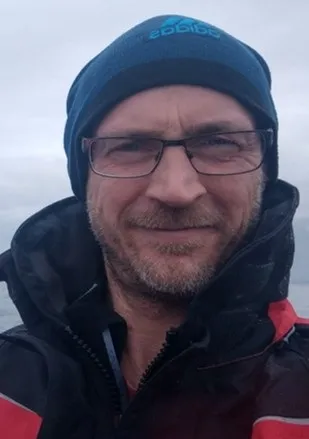About the project
This project will combine outputs from biological laboratory analyses, autonomous sensors (on moorings, floats and gliders) to investigate how physical and biological processes sustain ecosystem productivity in an Eastern Boundary Upwelling System off the west coast of Africa.
The Canary Current upwelling ecosystem constitutes one of the four main eastern boundary upwelling systems (EBUS) in the world. Hosting high productivity and socioeconomically-important fisheries, it is key in transferring biogeochemical (BGC) properties from the coastal upwelling eutrophic region towards the interior oligotrophic subtropical gyre, where the strength of the biological carbon pump is strongly controlled by macro-nutrient bioavailability. Recent observations over the last decades show a progressive warming, with an accompanying decrease in productivity, potentially due to changing nutrient supply. A lack of systematic information on how physical and biological processes sustain ecosystem productivity hampers our understanding of how it will respond in the future. This project will combine new in situ high-resolution autonomous biogeochemical observations with laboratory analyses of ecosystem activity and model-based understanding in relation to environmental forcings (e.g. productivity, circulation patterns, biogeochemical processes, etc.). This will provide a step-change in our understanding of the nature and impacts of these interactions on upwelling system nutrient transports and ecosystem response.
This project will leverage recently-funded sensing technologies and observational infrastructure, combining multiple approaches to better understand current EBUS behaviour, and future change. Specifically, the student will work with BGC sensors on subsurface moorings, autonomous floats and gliders, perform biological and chemical water sample lab analyses to interrogate ecosystem function and nutrient dynamics in the upwelling waters and cold-water filaments emanating from the shelf, and learn to use satellite products and high resolution BGC model outputs to contextualise their results. "
Supervisory team
The supervisory team includes supervisors from several organisations, including our INSPIRE Partners. Please contact the Lead Supervisor for more information about the team.
Training
The INSPIRE DTP programme provides comprehensive personal and professional development training alongside extensive opportunities for students to expand their multi-disciplinary outlook through interactions with a wide network of academic, research and industrial/policy partners. The student will be registered at the University of Southampton and hosted at NOC/University of Portsmouth.
As the project is highly multidisciplinary, applications from candidates with diverse experience are welcomed. We will train the student in essential skills, including:
- University of Southampton courses – e.g. Physical Oceanography, Climate Dynamics, Biogeochemical Cycles. Ecosystems
- Laboratory analyses for inorganic and organic nutrients and carbon, and microbial community structure and function (Flow cytometry, sequencing, fast repetition rate fluorometry)
- Theory/optimization/manipulation/data analysis of remote sensing products and autonomous technologies (BGC sensors, floats and gliders)
- Time series analyses, statistical tools, and analysis of ocean/climate model output.
- Seagoing, handling equipment, sample collection
- Communication/management/interpersonal skills for presenting at national international conferences
